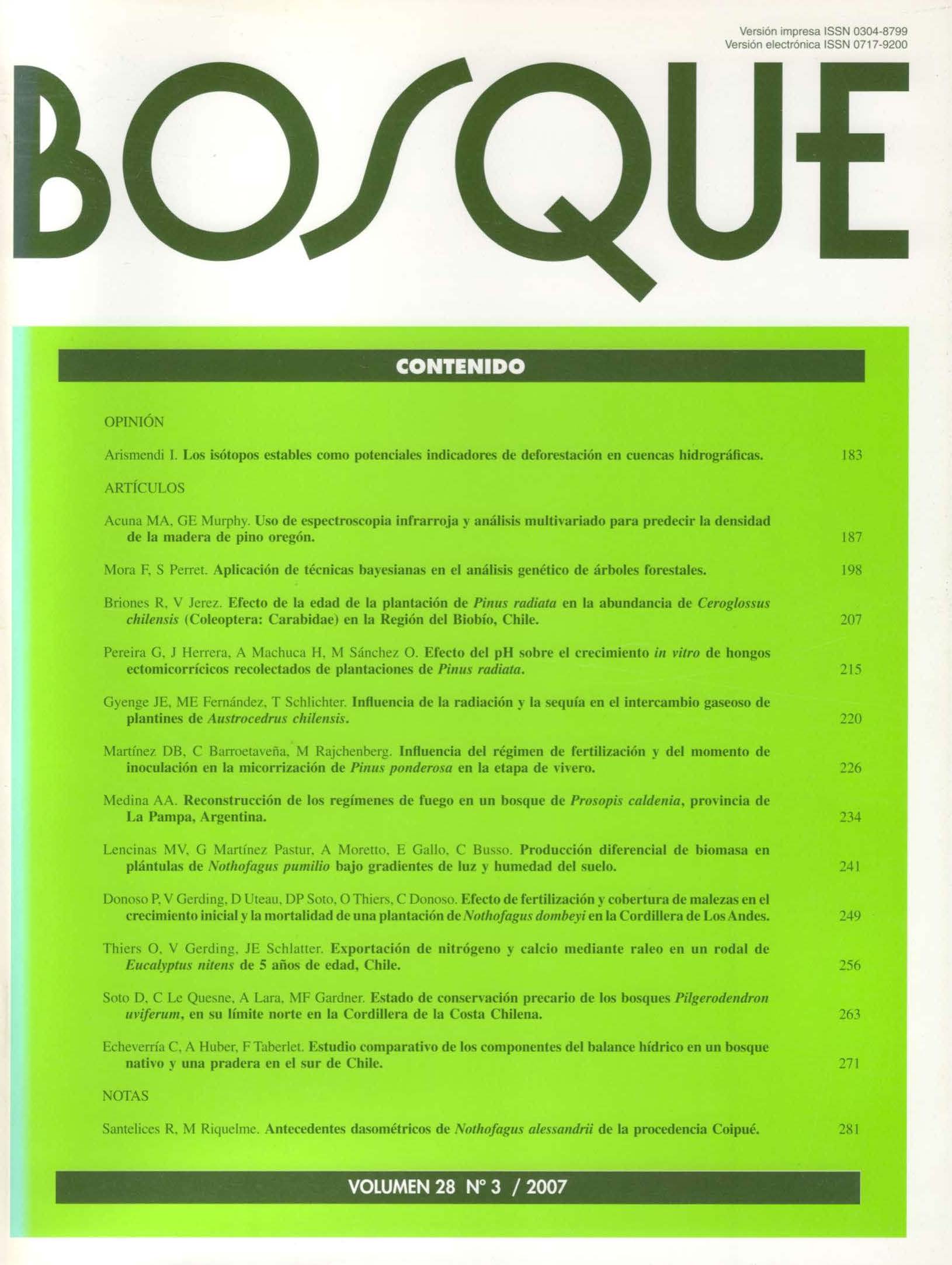Main Article Content
Dec 31, 2007
Abstract
The consequences and effects of the agroecosystem on the faunistics communities, have been poorly documented in Chile. The literature related with the insects in plantations of Pinus radiata in the Biobío Region indicates 18 families and 44 species of soil beetles, where Ceroglossus chilensis is the most constant and dominant species. The relative abundance of C. chilensis in pine plantations as a possible consequence of age, handling type and/or geographical location of the plantations is evaluated in this study. For that, plantations of 4-5 years, 6-7 years, 10 years, 13 years and 22-24 years, with different handling type and located in the Coastal range and the foothill zone of the Andes mountains were selected. C. chilensis was collected during December 2004 and January 2005, by means of ten pitfalls traps, during 15 days. The results indicate a high relative abundance in the foothill plantations. For both geographical situations, the highest relative abundance was obtained in the 10 year-old plantation, after the first tree thinning, and also in the 13 years-old plantation prior to commercial thinning. Our results indicate that the differences in the abundance of C. chilensis that inhabit the different plantations were determined principally because of the native flora present under the canopy. In this context, C. chilensis could find refuge, feeding, habitat corridors and a source of recolonization. The lowest abundance found in plantations without native understory could indicate environmental disturbance. C. chilensis is also evaluated as an interferences indicator species.


